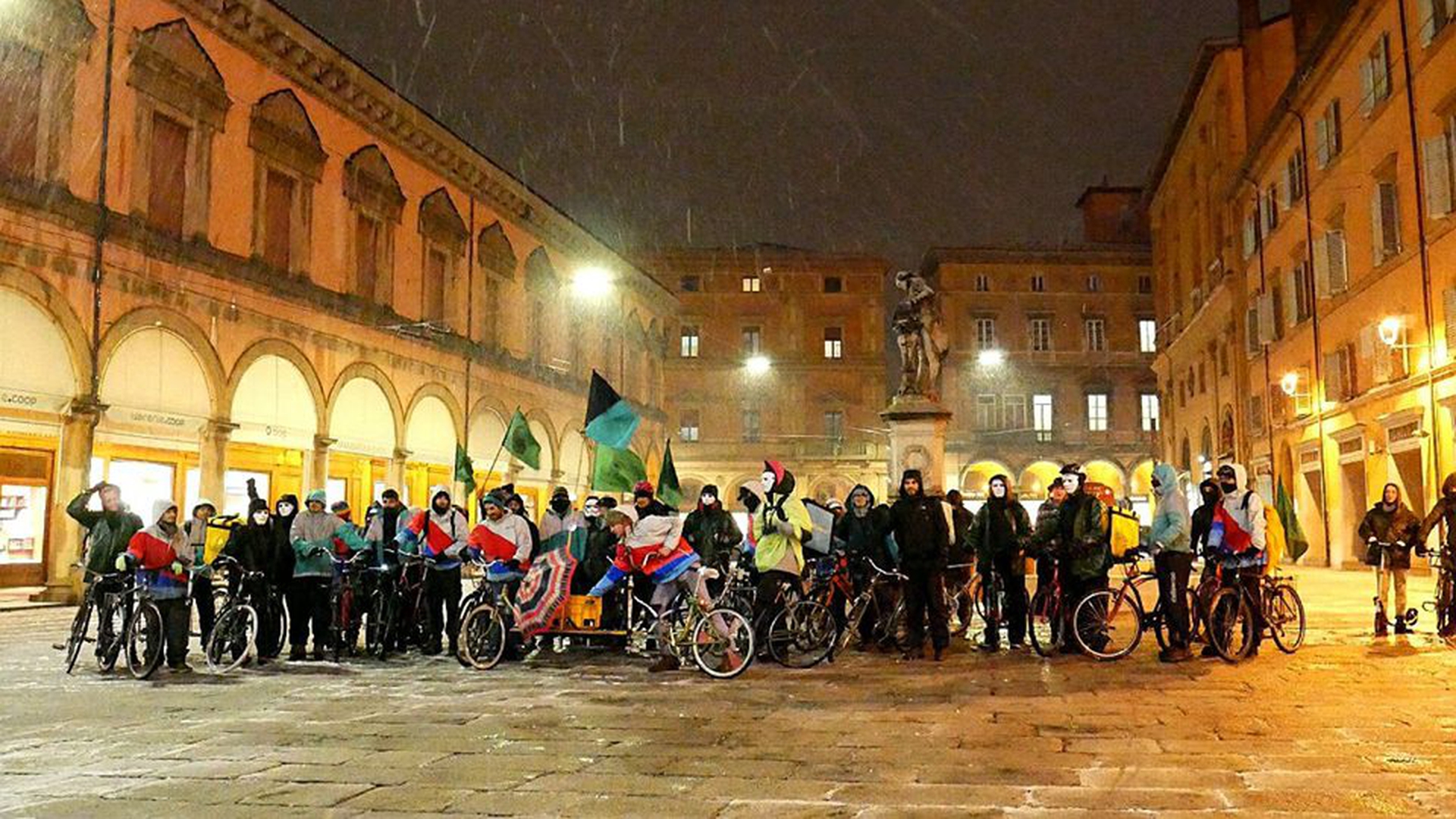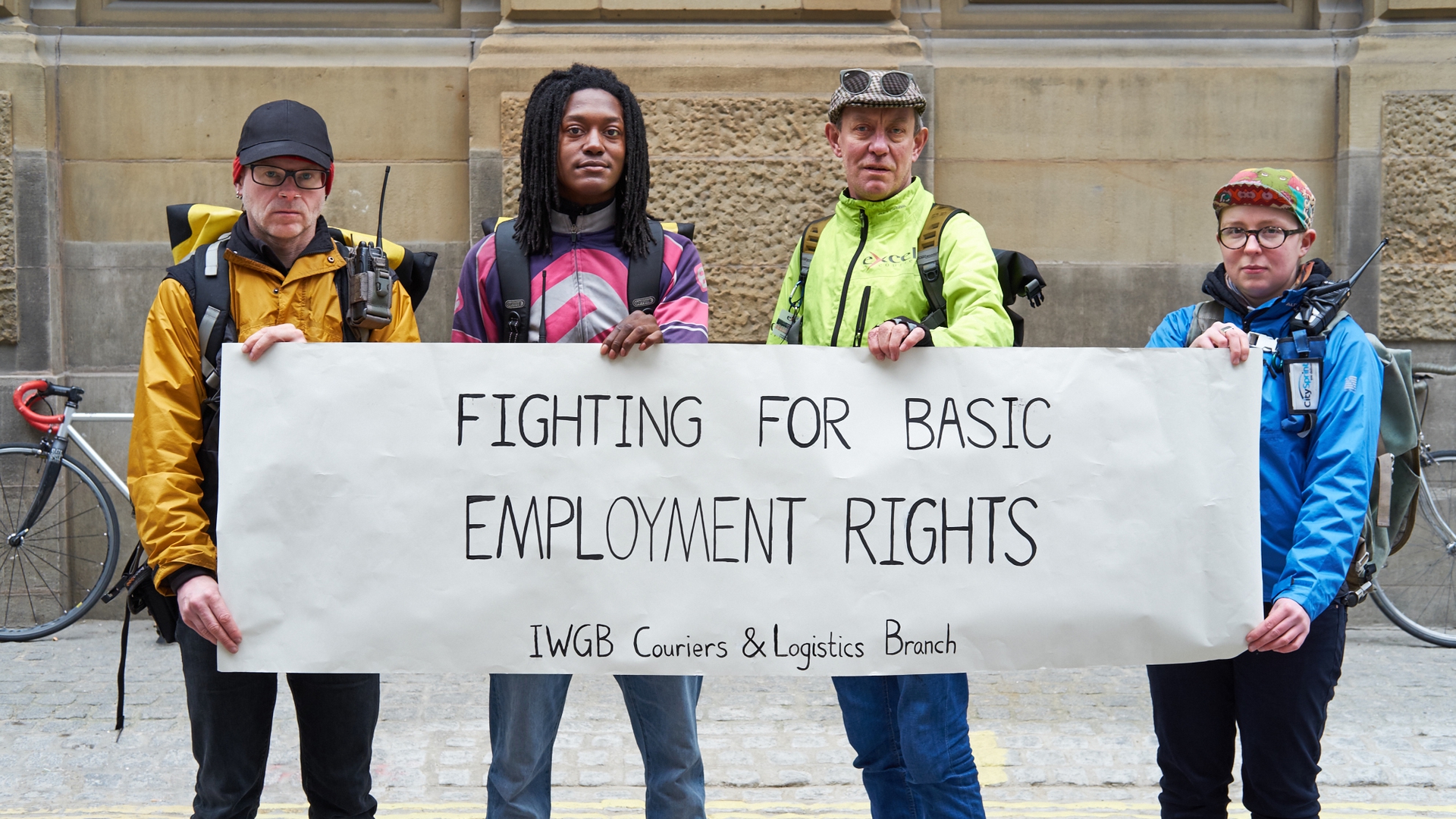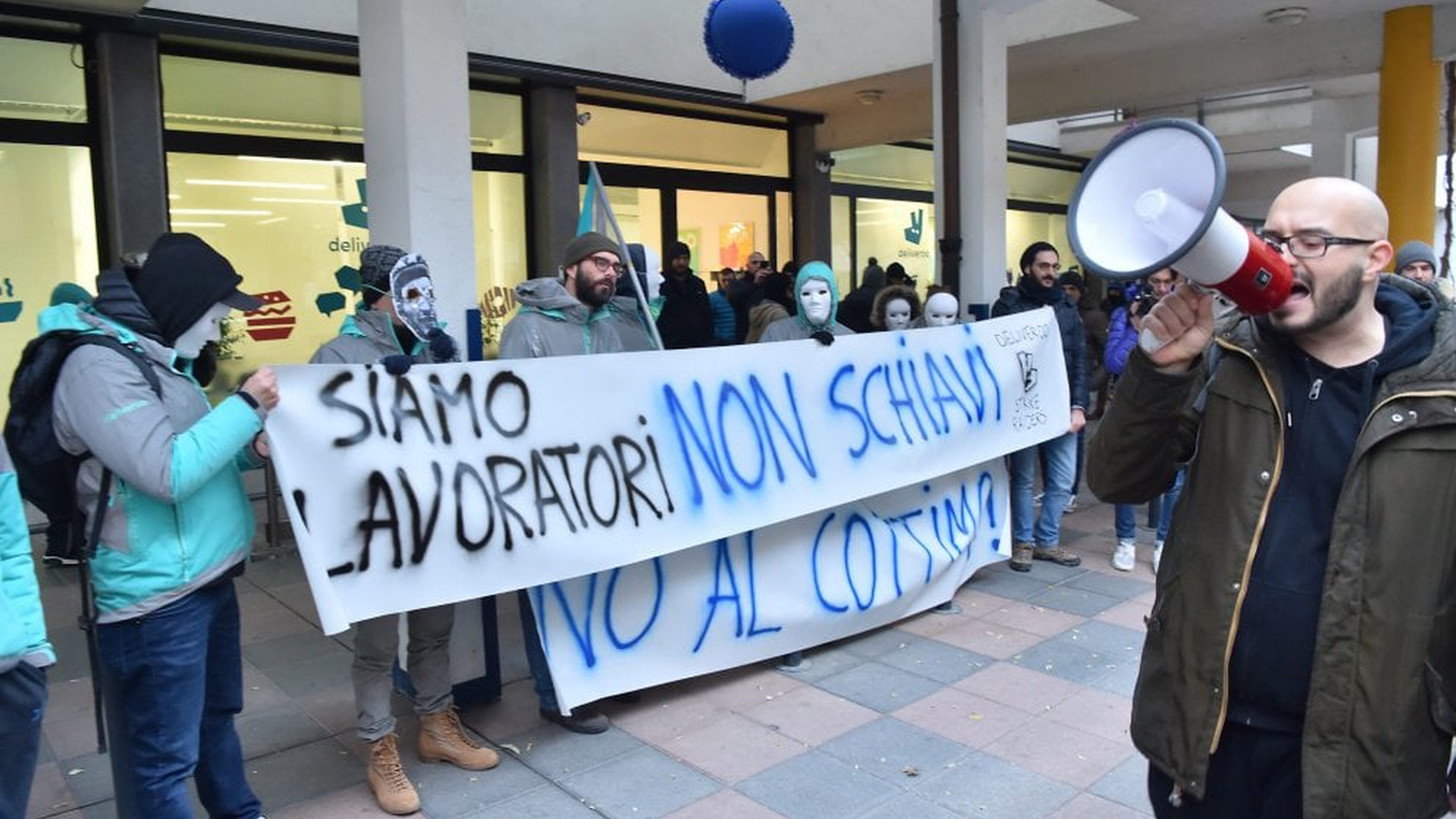Using the Contradictions: An interview with Italian riders
by
Callum Cant (@CallumCant1),
Clara Mogno,
Lorenzo
October 31, 2018
Featured in The Transnational Courier Federation (#5)
‘The fight against platform capitalism has to go with the fight against racism and sexism’

inquiry
Using the Contradictions: An interview with Italian riders
‘The fight against platform capitalism has to go with the fight against racism and sexism’
In October food platform workers from 12 states and 34 organisations met in Brussels for the founding meeting of the Transnational Federation of Couriers. This federation will represent platform workers across borders and lead a coordinated fight for better conditions in the sector. During the meeting, we interviewed a number of workers from across Europe to get a better understanding of the dynamics of the struggle.
Callum Cant is a Notes from Below editor
Lorenzo is a member of Riders Union Bologna
Clara Mongo, is a rider, researchers and cartoonist in Padova
What has happened in Italy since 2016?
At first some riders in Turin started to organise against the change in the pay structure from per hour to per drop. They started striking against Foodora, but they got fired. They took the company to court to try and get a better legal status. After that some other assemblies began in other cities. The next one to form was Milan in early 2017 and the latest is Bologna in Autumn 2017. We have grown as a movement and continued to strike. We coordinated a common action during May 1st 2018, with a strike across all three cities.
Right now, with a new government, they have started to create a national sectoral agreement for the riders, and now we are waiting to see the proposal from the platforms. We are trying to make clear the contradictions in our situation, where a right wing government is claiming to defend workers and the platform seem unable to improve working conditions. So for the moment, the national agreement has yet to be defined. But we will try and force the contradictions between the government and the platforms to begin to strike again.
This government is in part a fascist government, right - so how does it feel to be engaging in collective bargaining with fascists?
At first, it felt very bad. We had to work out how to use the contradiction of a fascist government trying to defend young white workers on bicycles. The platforms have found themselves unable to respond to the public support for our demands. The government doesn’t seem to have the ability to do anything either. The government is now going back on its initial steps in order to try and achieve something from this collective bargaining.
What is the situation like in Padova at the moment?
Padova is a smaller city than Milan. There is a local competitor platform in the city, but since February Deliveroo and Glovo have arrived. So the city has just started to use these new platforms and workers are just starting these jobs. We have seen a progressive reduction in wages. For example, Glovo’s base hourly rate used to be €6.50 an hour, and then after two months they cut the pay to €4 an hour, with some hours where there is no payment per hour at all and only payment per drop. And the per drop rate has become based on the distance of the delivery, so it is performance based pay.
On the issue of fascism, I want to add to what Lorenzo has said. It’s really important for me to keep in mind that the fight against platform capitalism has to go with the fight against racism and sexism. We have a fascist government in Italy, but we can use our bargaining to bring attention to other forms of exploitation like migrant exploitation and gender exploitation. So I hope that in more cities across Italy, workers will rise and join the fight that riders from other cities are leading.
On the 7th of Novemeber, Lorenzo updated us on the progress of negotiations with the platforms.
This morning the platforms made three proposals. The first one was put together by Deliveroo and Glovo, the second one by some smaller Italian companies, and the third by Dominoes pizza.
The proposal by Dominoes showed their own hiring conditions, to demonstrate that they have good contracts already. The Italian ones wanted to propose something very similar to the charter of digital rights that was agreed in Bologna this year (although it goes no further). The Deliveroo/Glovo one is a white paper of nothing. They have made no real proposals at all.
So, we argued in the meeting that is is not acceptable to make a national agreement on the basis of these conditions. But now the government wants some progress, because they have just said that they are getting towards a common agreement that everyone should sign. They’re saying that their common agreement will be a really good deal for us because they have included our demands, especially about wages, national insurance and the ranking system. But actually we have still to read this proposal and make our minds up. We are preparing in our cities - Milan, Florence, Rome, Bologna - to hold worker assemblies and discuss the situation.
In my opinion, all of these proposals are unacceptable. I personally don’t trust the government action at all. We will have to see and discuss with everybody, but I don’t have a good feeling about this.
Featured in The Transnational Courier Federation (#5)
Subscribe to Notes from Below
Subscribe now to Notes from Below, and get our print issues sent to your front door three times a year. For every subscriber, we’re also able to print a load of free copies to hand out in workplaces, neighbourhoods, prisons and picket lines. Can you subscribe now and support us in spreading Marxist ideas in the workplace?
Read next

The Workers Will See You Now: Organising with the IWGB
by
Jim Benfield
/
Aug. 16, 2018

